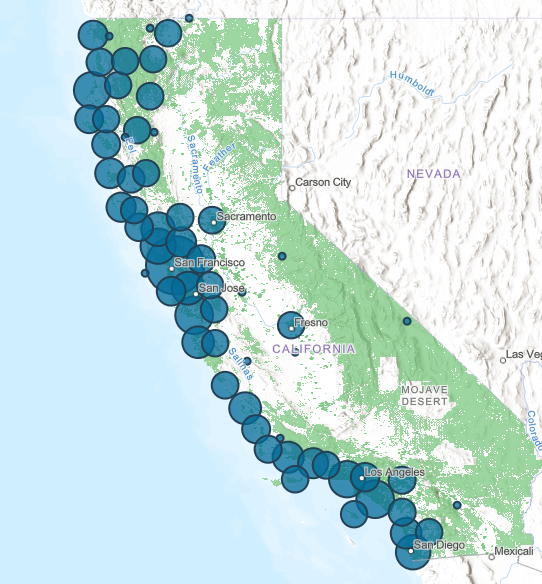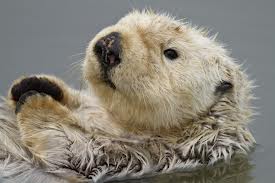Coastal Stories Grant FAQ
Who is eligible?
Federally-recognized tribes, nonprofit organizations, and public agencies are eligible for funding. To be eligible, a nonprofit organization must qualify under the provisions of Section 501(c)(3) of the Internal Revenue Code. Other community-based organizations and tribes that are not federally-recognized may apply with a 501(c)(3) fiscal sponsor.
What sort of projects will be funded?
Projects that research, develop, and/or present diverse stories, and/or present stories directed towards visitors whose stories and perspectives have been historically excluded from publicly-accessible outdoor spaces. All projects must present a story connected to outdoor spaces in a way that will reach the public.
Examples of eligible projects:
- Developing and implementing storytelling products, including but not limited to signage, murals, monuments, and art installations. Digital content (web, video, or audio/audio tours) is fundable; however, the digital content needs to be linked to a physical product.
- Hiring local artists or community members to design and implement storytelling products.
- Hiring a historian or community members to research and write content for storytelling products.
- Adding storytelling or interpretive elements onto existing infrastructure (waterfronts, public accessways, interpretive centers, installations/education exhibits, etc.) in free public spaces.
- Projects that use creative forms of community engagement to develop and implement storytelling products.
Examples of ineligible projects include:
- Hiring historians, artists, or community members to write content, without presenting this content in a way that centers the historically excluded community’s perspective and/or contributions.
- Developing and implementing storytelling products that are not located in a publicly accessible outdoor space.
- Primarily social media campaigns/content.
- Producing digital content that isn’t connected to a physical installation.
- Projects that provide excursions to the coast. Please see the Conservancy’s Explore the Coast grants for this type of funding.
- Construction projects that do not involve storytelling. Please note, however, that the Conservancy has funded hundreds of projects to build new trails, trailheads and other amenities (beach stairways, bathrooms, overlooks, etc.) through other funding programs.
What is the maximum and minimum grant award?
There are no maximum or minimum grant amounts for this funding; however, it is anticipated that most grants will be up to $175,000. The budget for the requested amount should reflect the scale and effort required to implement the project.
Will advance payments be available?
If needed, a special arrangement for advance payment can be provided for small organizations and/or community based organizations. If your project is selected to receive funding, please let your point of contact know that advance payment needs to be arranged.
How do grantees report project progress and success?
Please visit the Conservancy “For Grantees Page” for detailed instructions and template for progress reports that accompany requests for disbursements:
Can grant funding cover transportation, food, interpretation, etc?
Grant funding can cover transportation and food related to community engagement. Grant funding may cover interpretation of the project materials and for community engagement.
Are matching funds required?
Projects are not required to have matching funds, but projects with matching contributions will get priority in the evaluation. If an applicant’s project is selected for an award, the applicant will need to document the matching contribution during the implementation of the project.
The proposed funding requires that “priority shall be given to projects that include a commitment for a matching contribution. Contributions may be in the form of money, property, or services.” Matching contributions could include funding or staff time (contributed by the applicant, project partners, or volunteers), donations of materials, or other services defined by the applicant. Match does not mean equal contribution and for the purposes of this grant program there is no threshold or minimum required for the matching contributions.
Latest News
- Press Release: Coastal Conservancy Awards over $40 million for coastal access, restoration, and climate resilienceOakland, CA (4/18/2024) – Today, the Board of the State Coastal Conservancy approved grants totaling over $40 million for coastal access, restoration, and climate resilience. Among the grants awarded today are: A grant of up to $6,000,000 to Humboldt County Resource Conservation District to undertake the North Coast Wildfire Resilience Planning and Implementation Grant Program, which […] (Read more on Press Release: Coastal...)
- Sea Otter Recovery Grants RFP Now Open!The California State Coastal Conservancy announces the availability of grants to public agencies, tribes and nonprofit organizations for projects that facilitate the recovery of the southern sea otter along California’s coasts. The California Sea Otter Fund is one of the state’s tax check-off funds that allows taxpayers to voluntarily contribute to the recovery of California’s […] (Read more on Sea Otter Recovery...)
- Coastal Conservancy Public Meeting in Oakland – April 18Meeting Notice Douglas Bosco (Public Member), Chair Marce Gutiérrez-Graudiņš (Public Member), Vice Chair Joy Sterling (Public Member) Jeremiah Hallisey (Public Member) Wade Crowfoot, Secretary for Natural Resources; Bryan Cash and Jenn Eckerle (Designated) Caryl Hart, Coastal Commission Chair; Madeline Cavalieri (Designated) Joe Stephenshaw, Director, Department of Finance; Michele Perrault (Designated) Senate Representatives Benjamin Allen (District […] (Read more on Coastal Conservancy Public...)

 Help Save Sea Otters at Tax Time
Help Save Sea Otters at Tax Time

